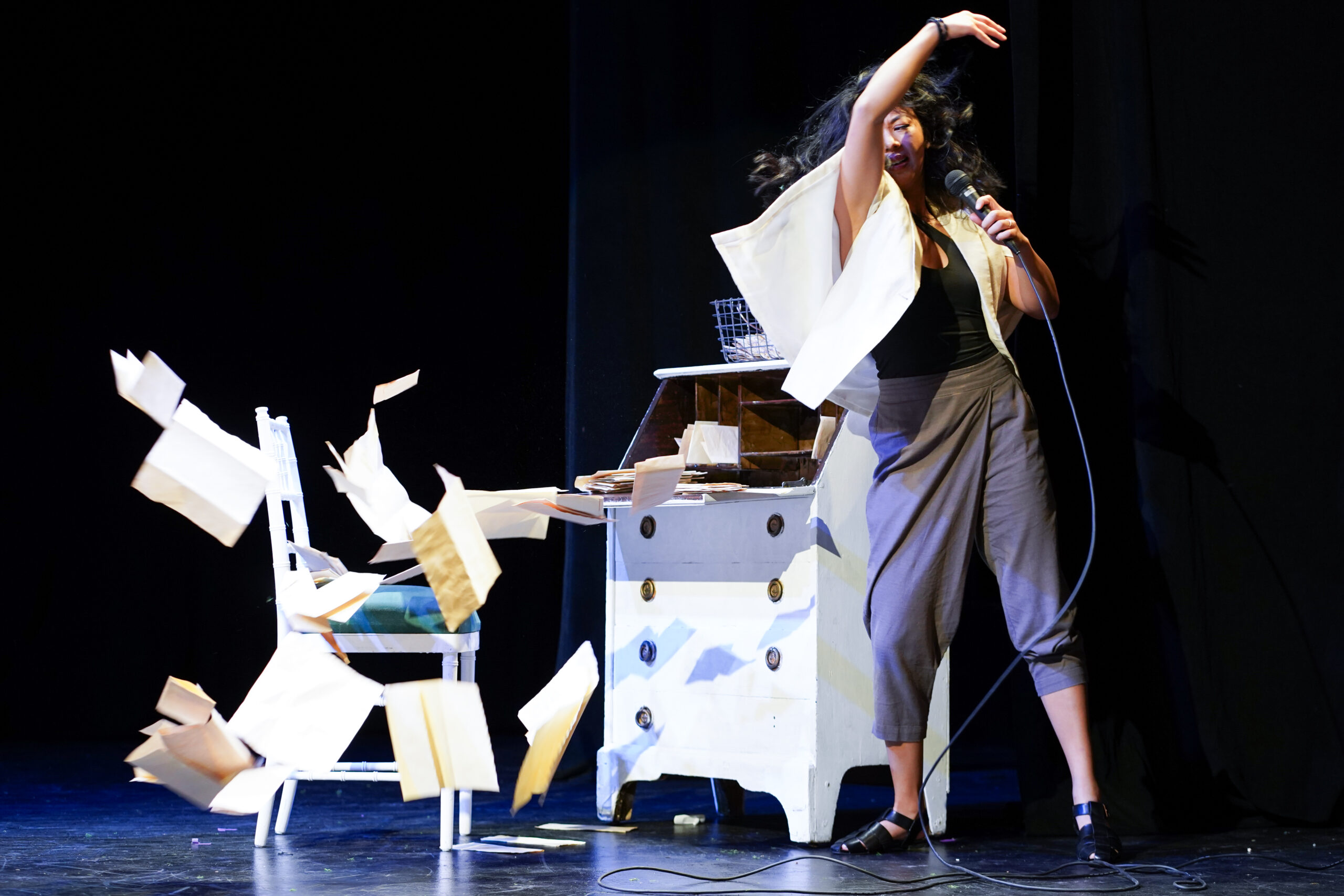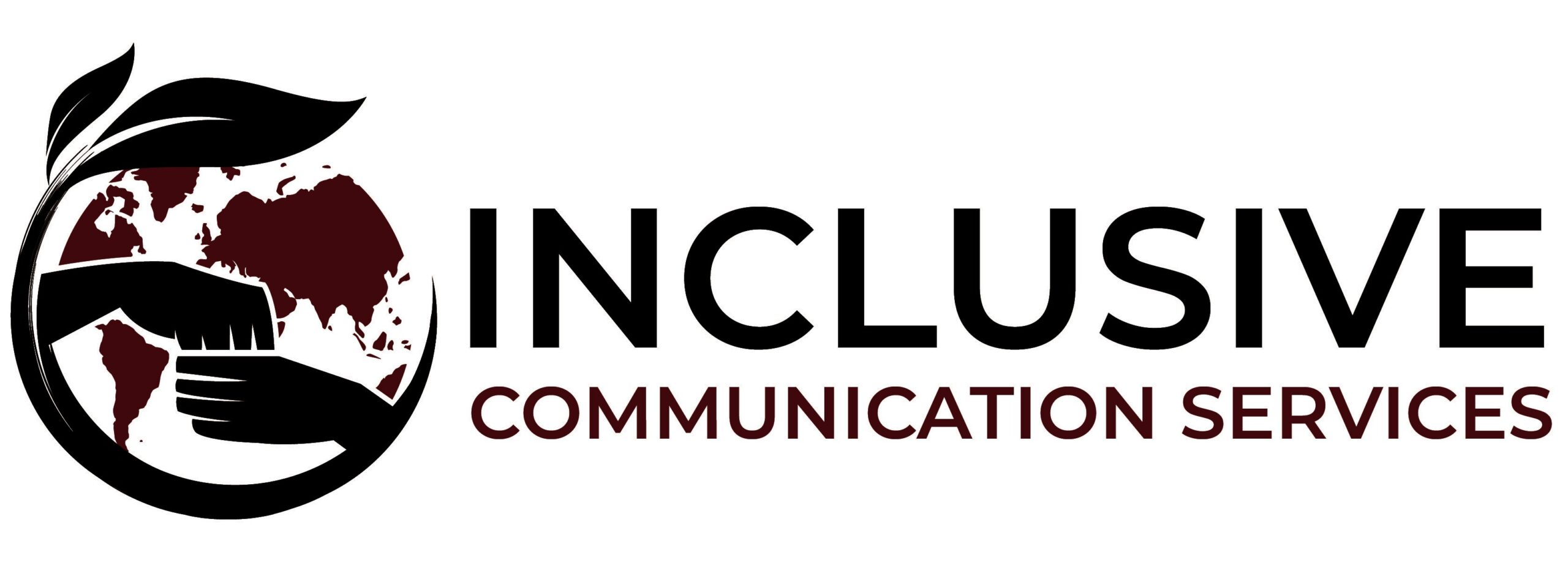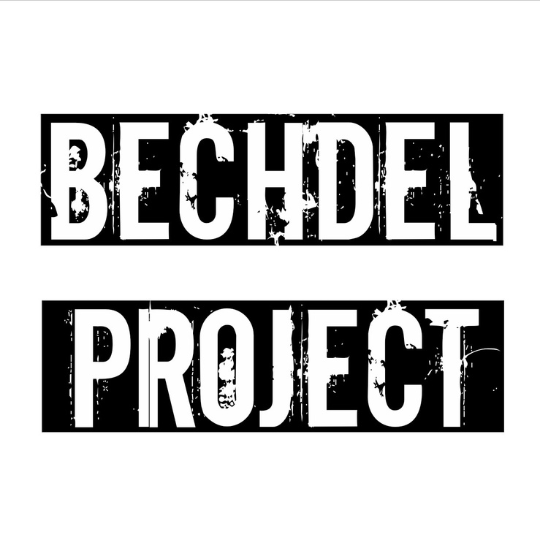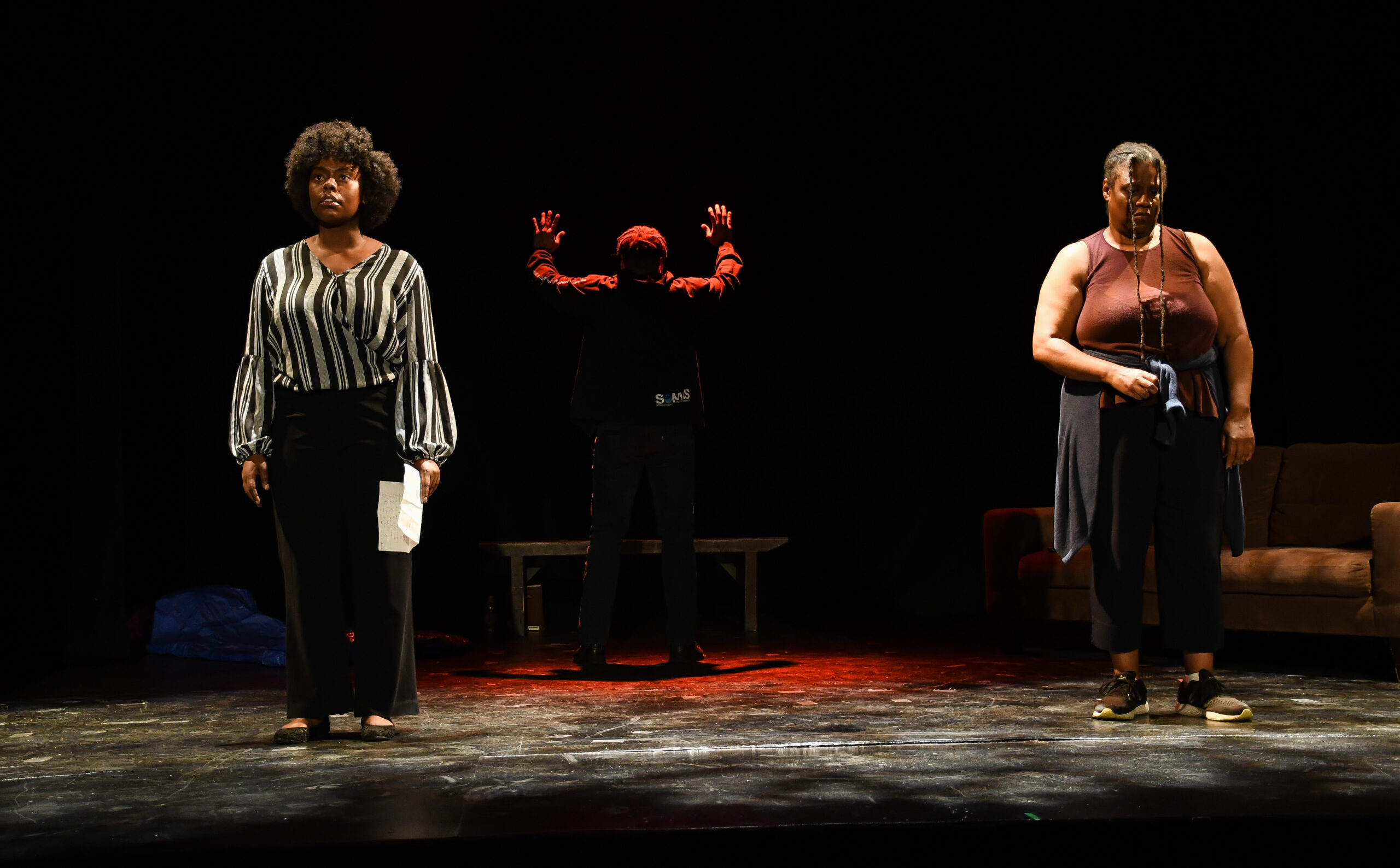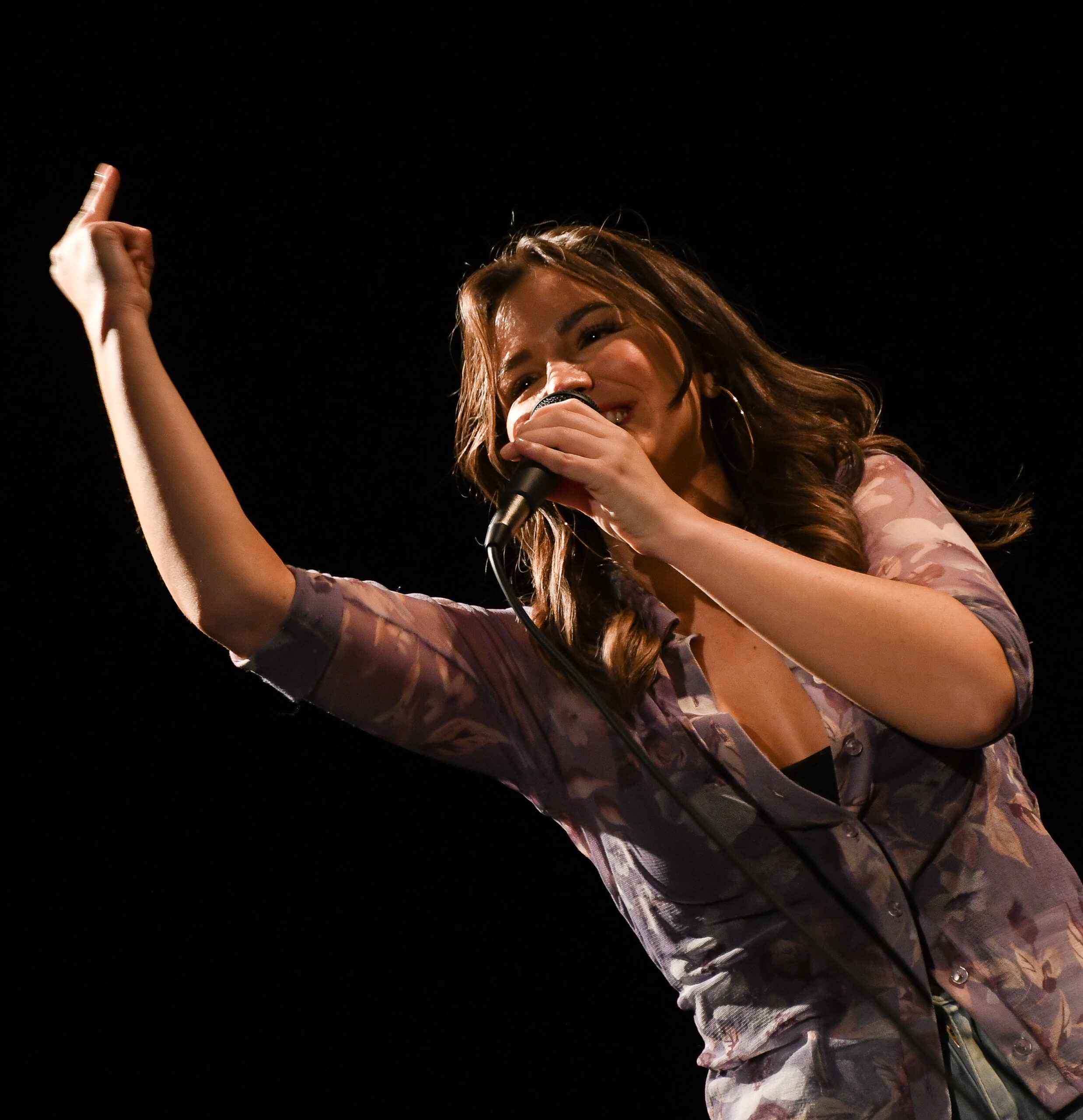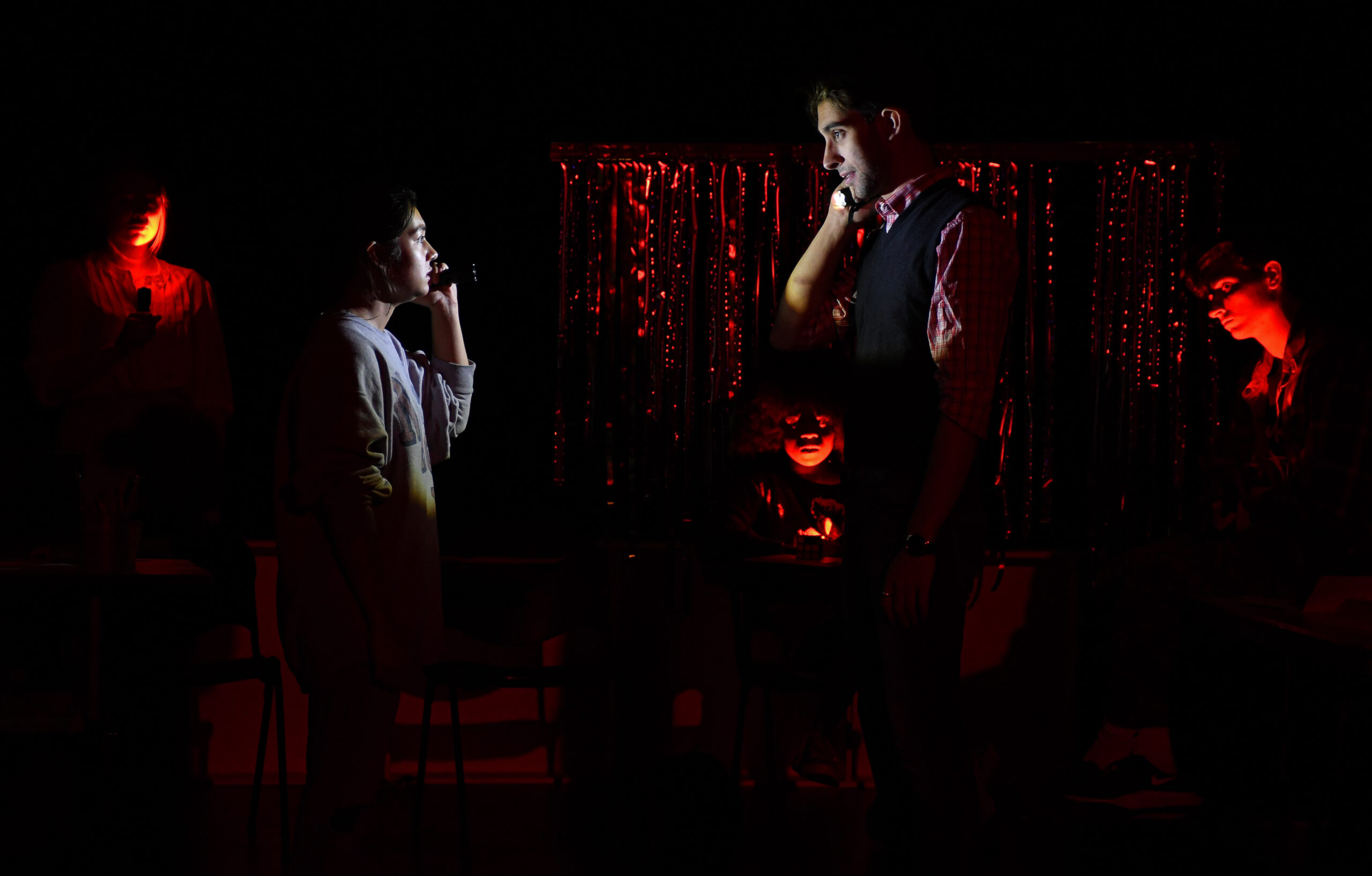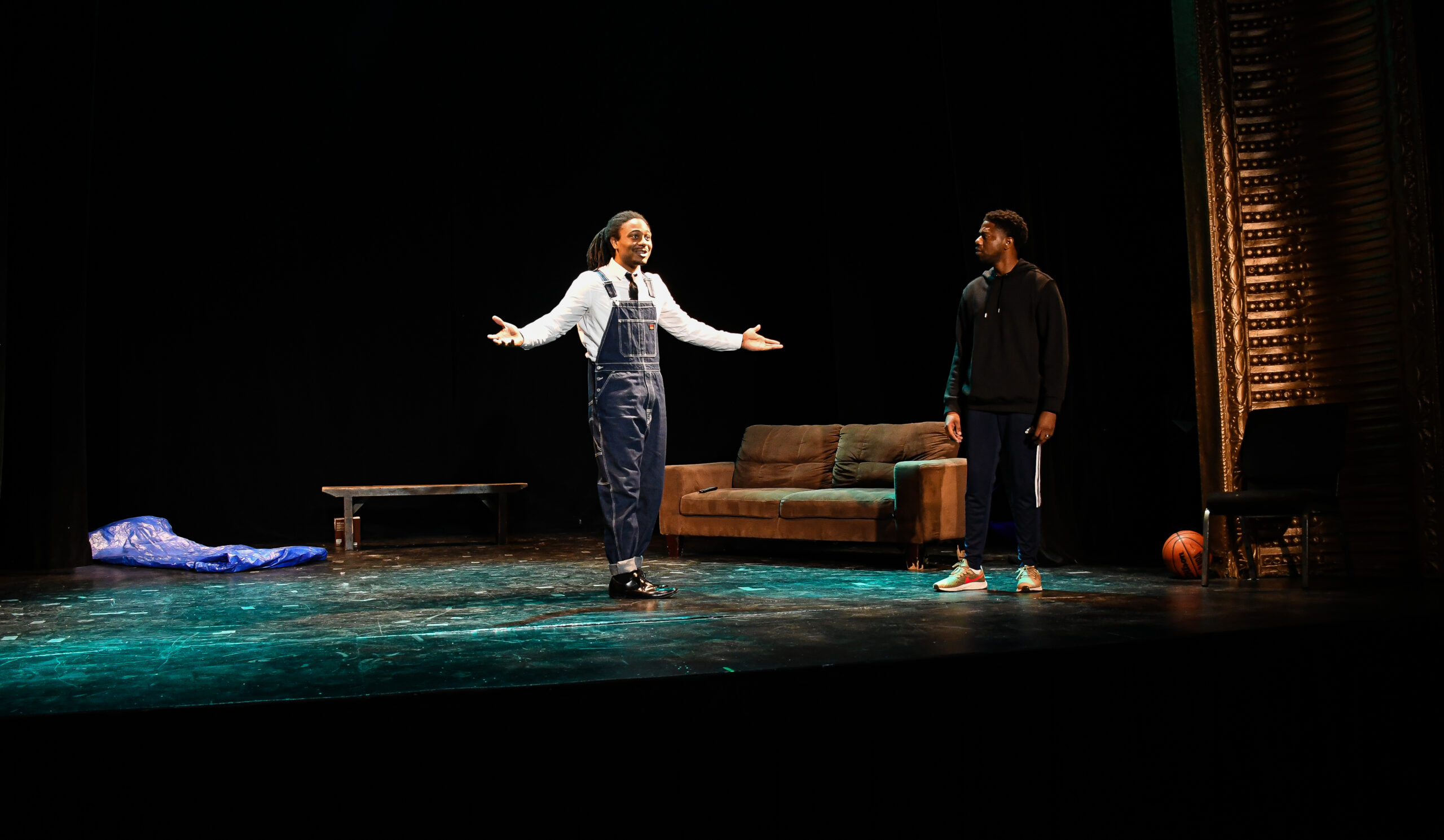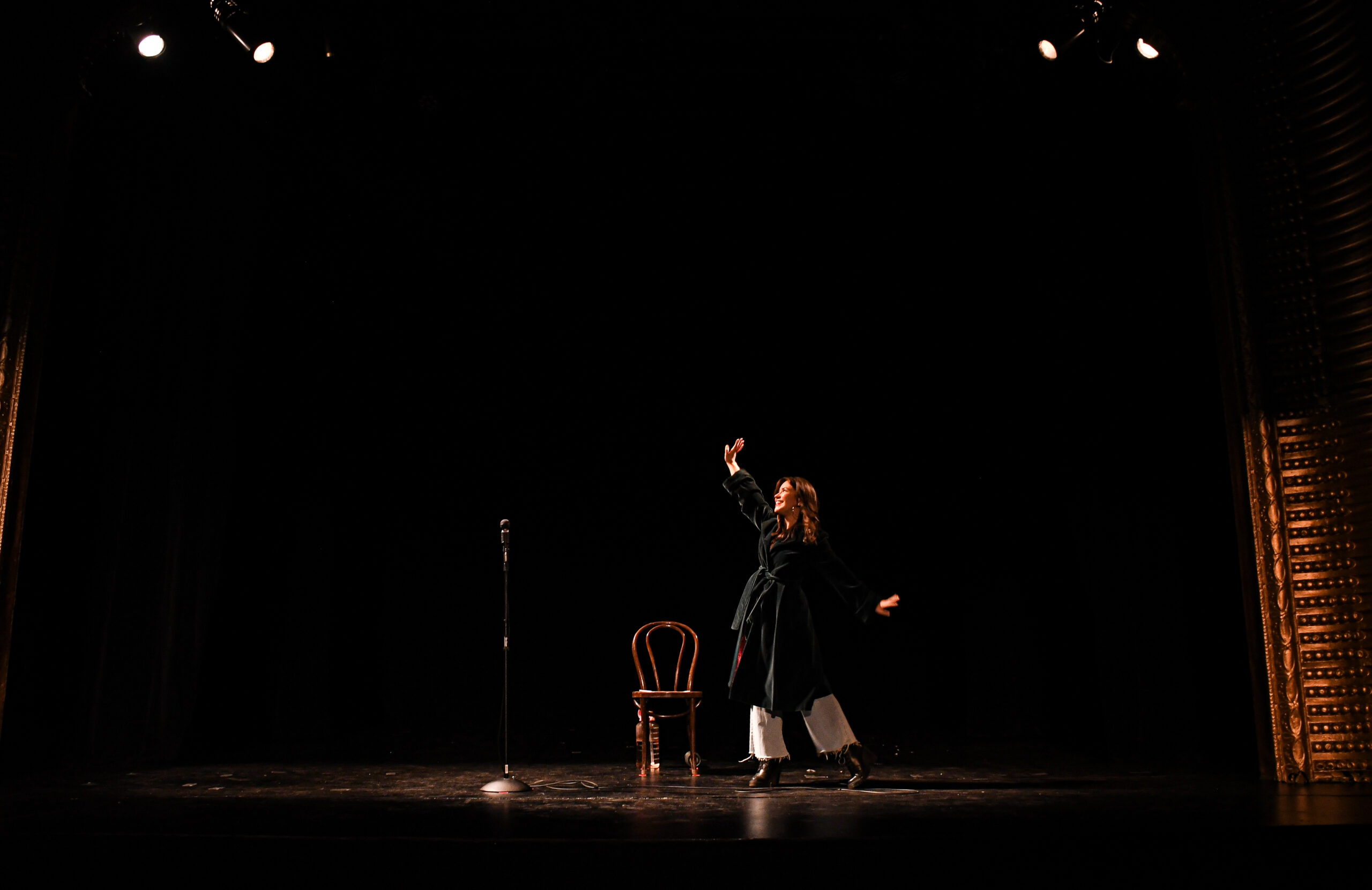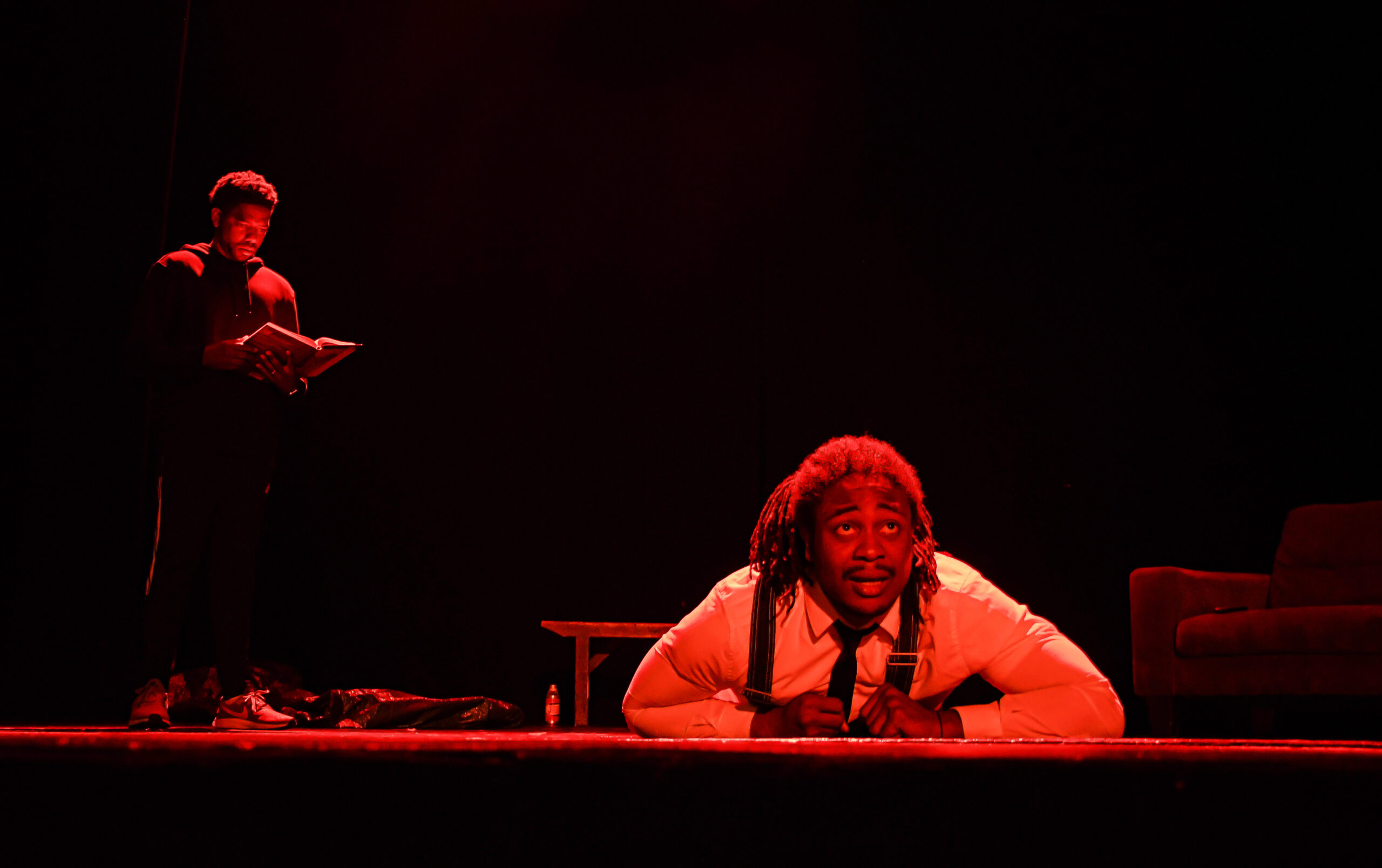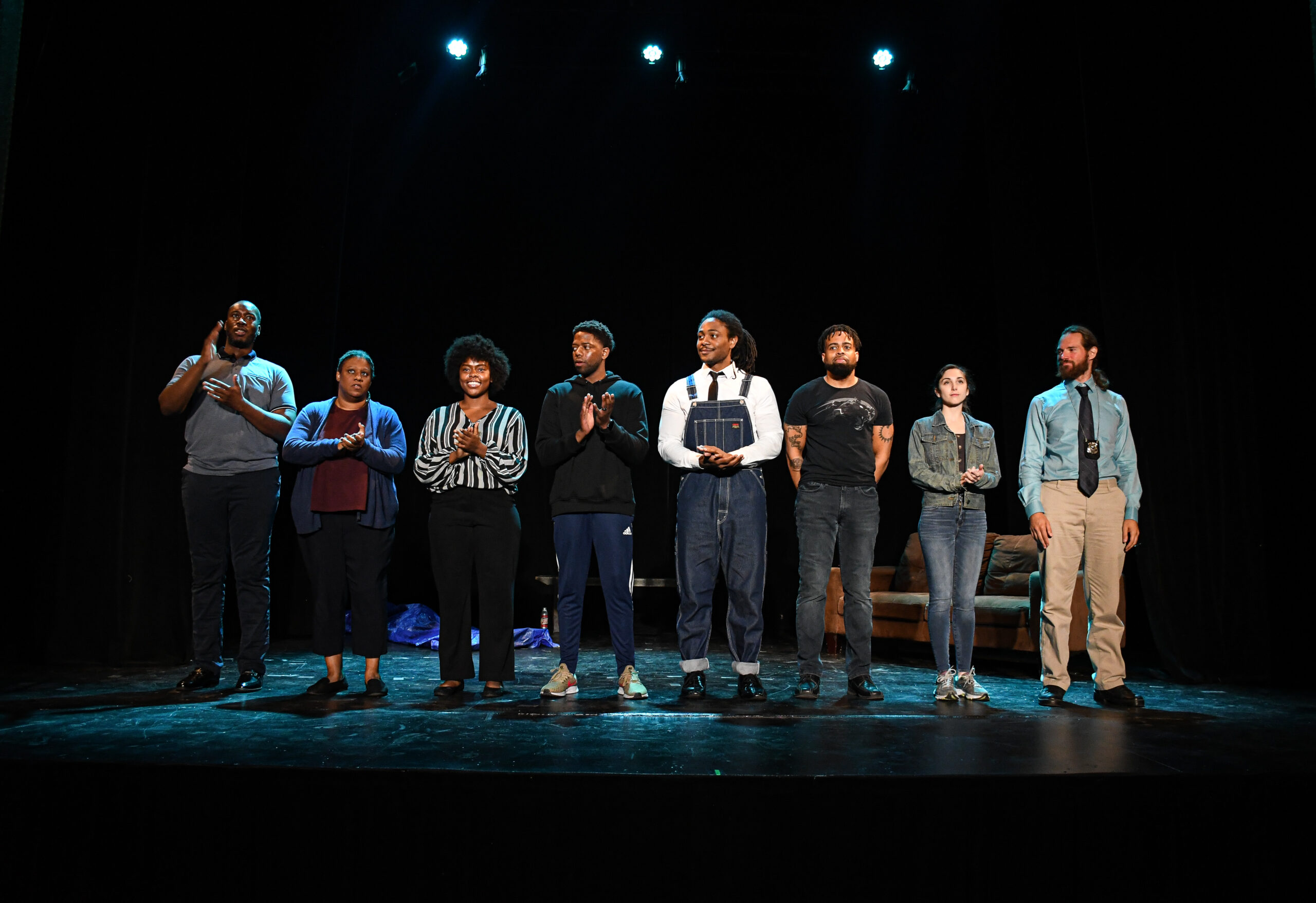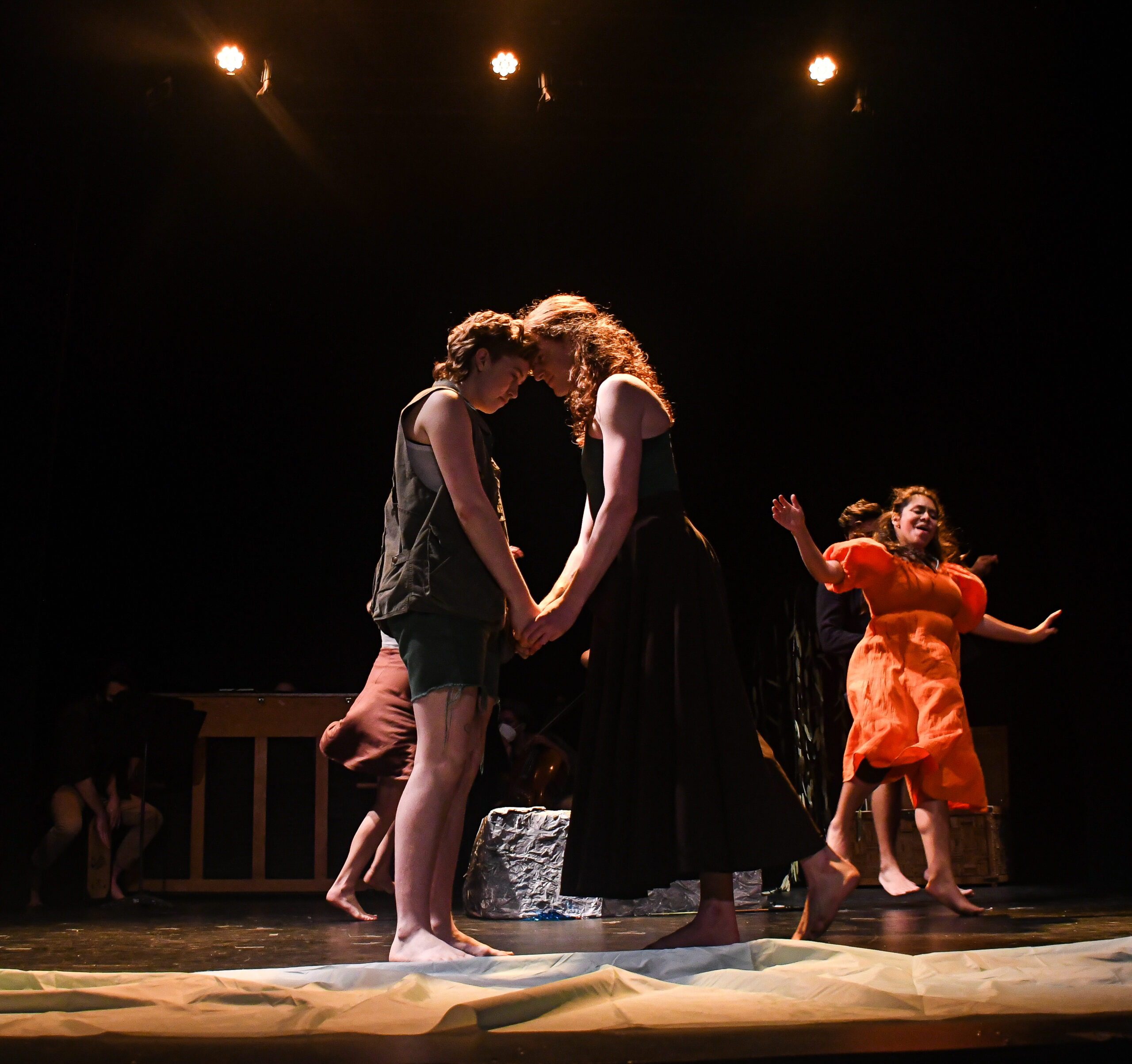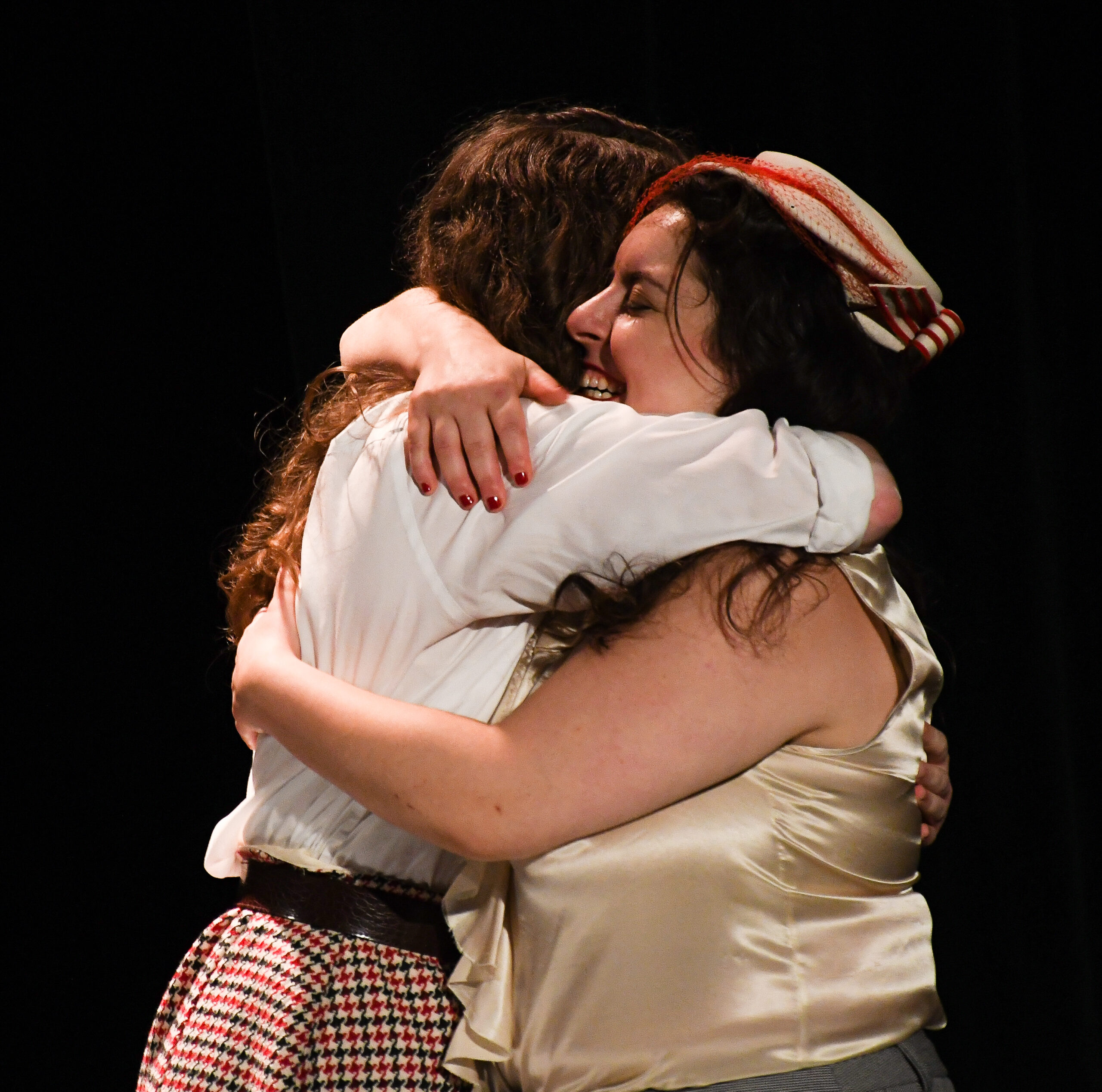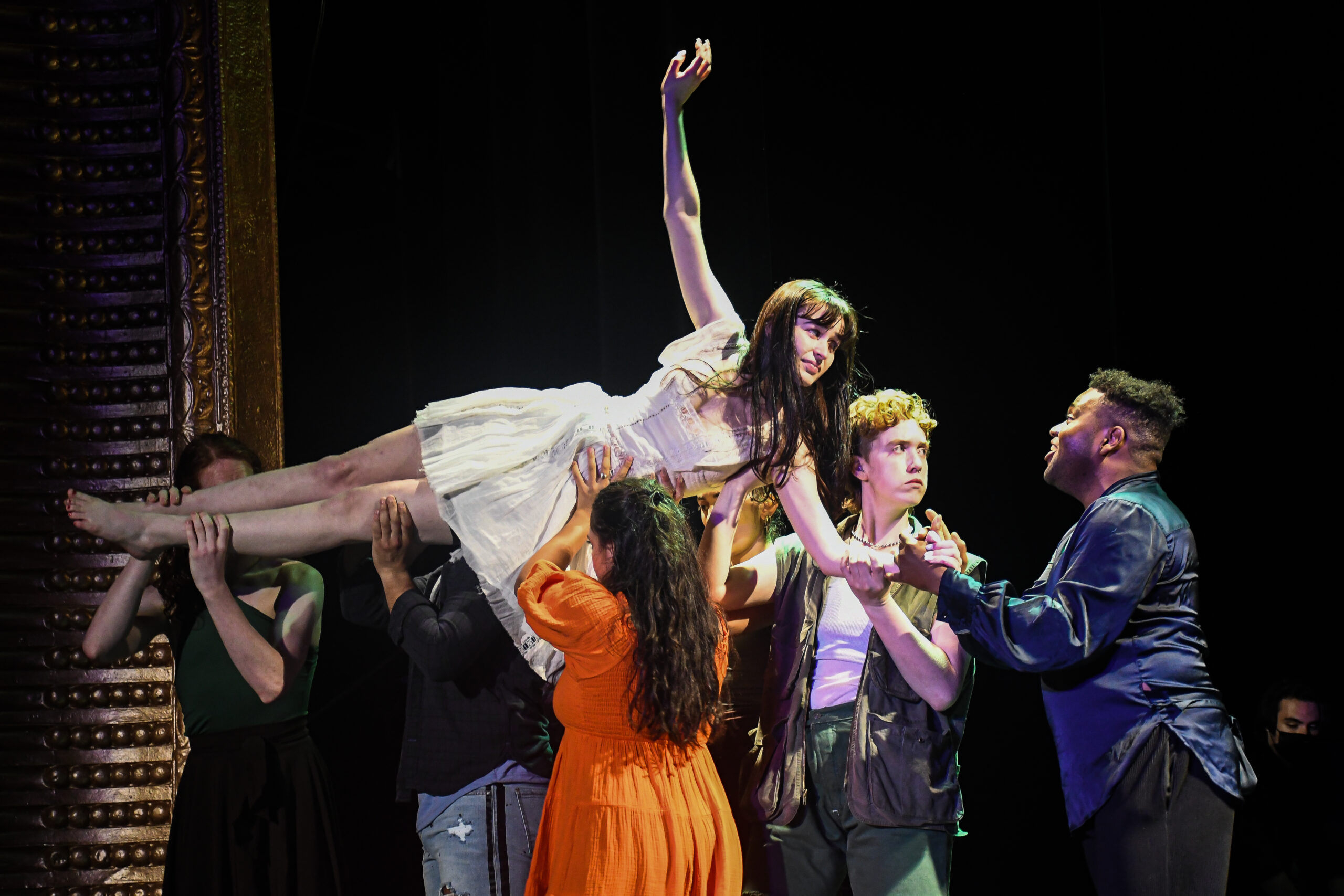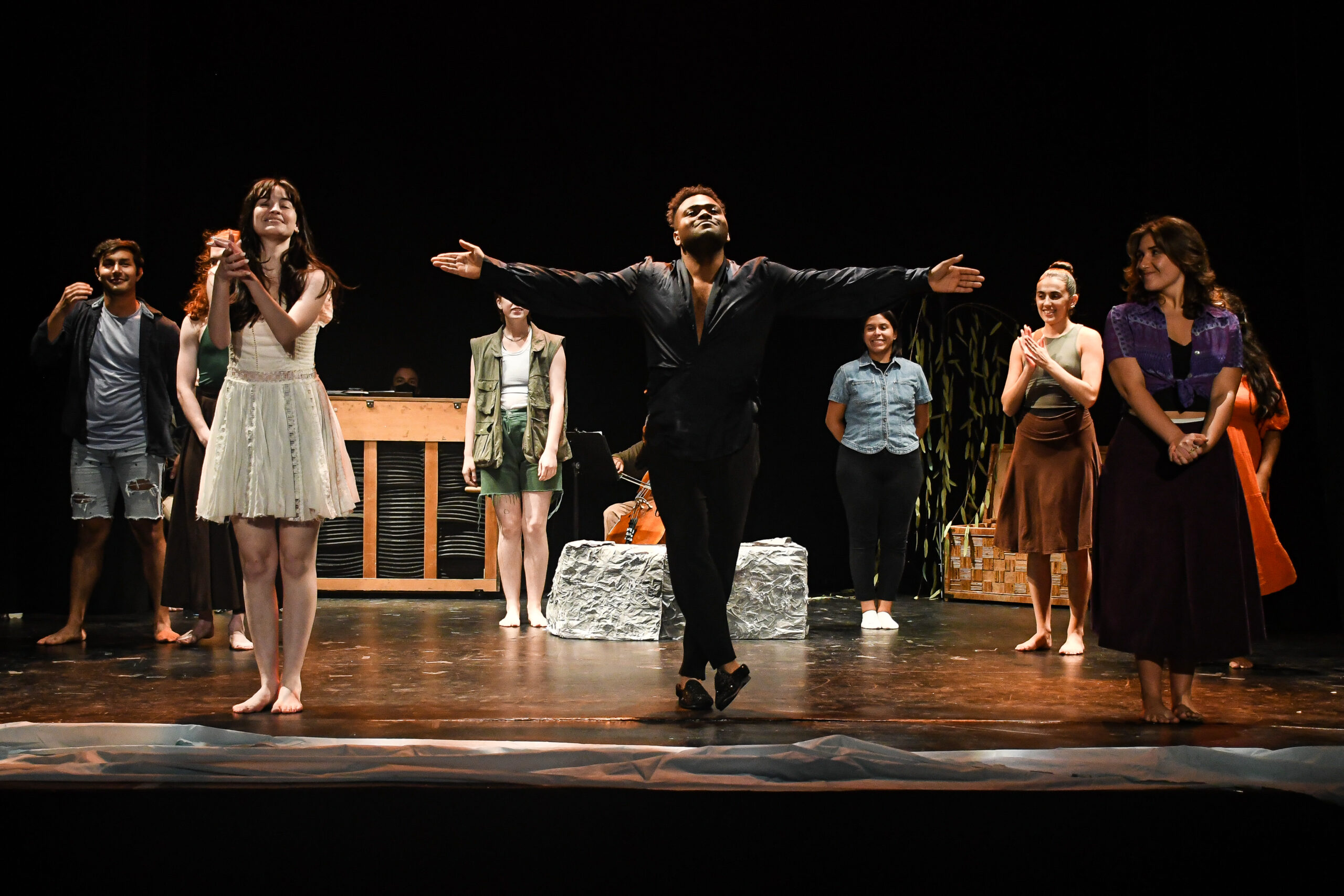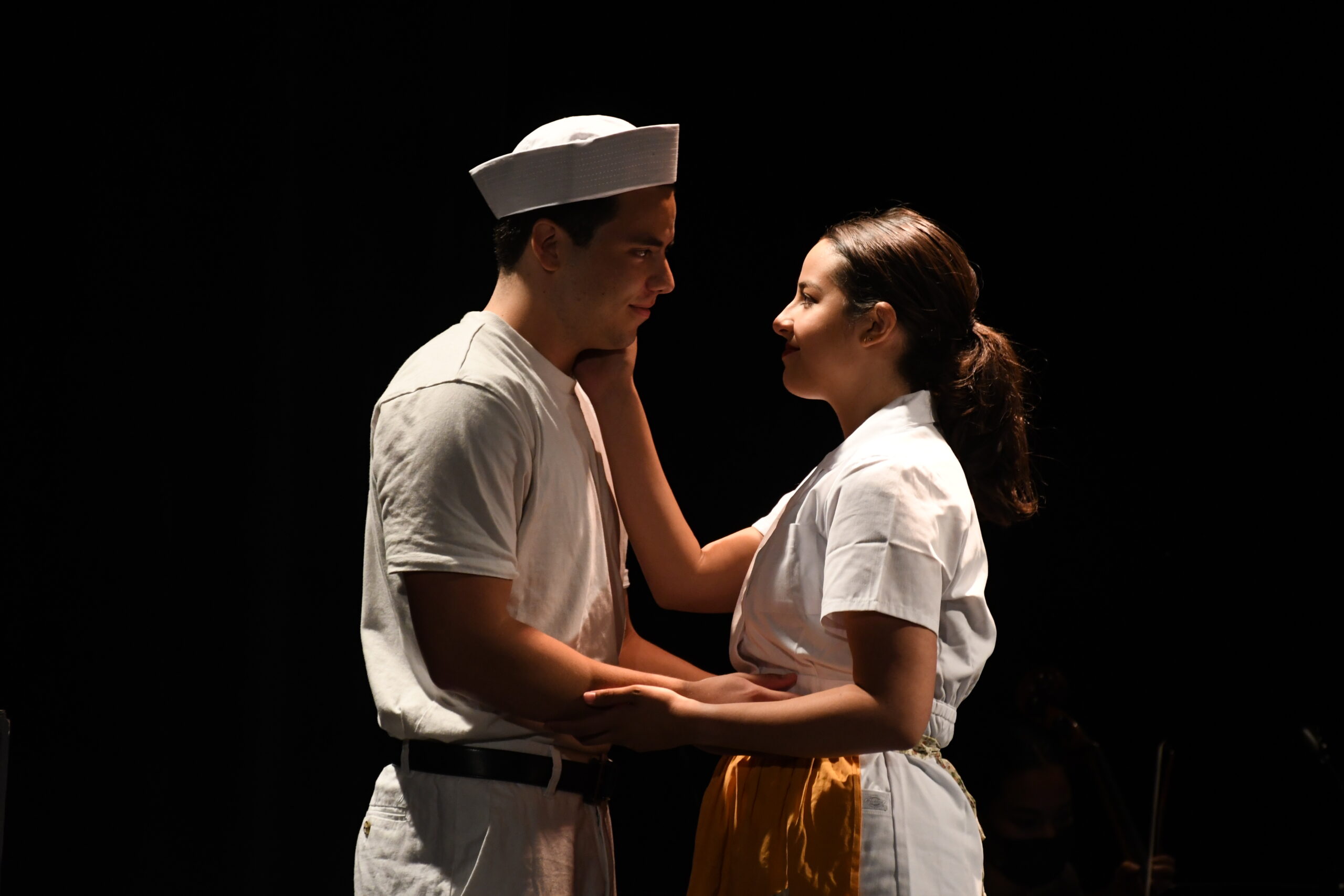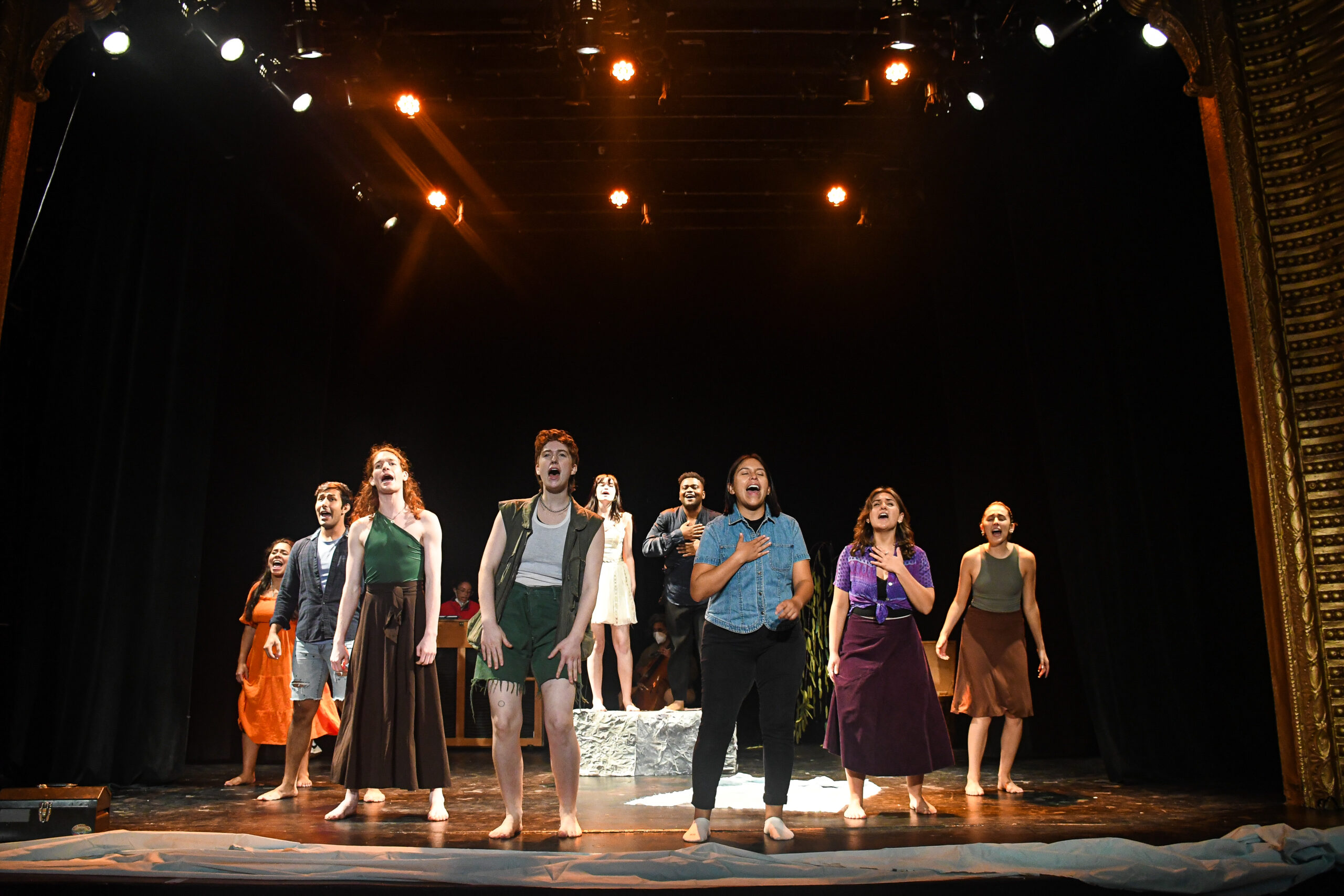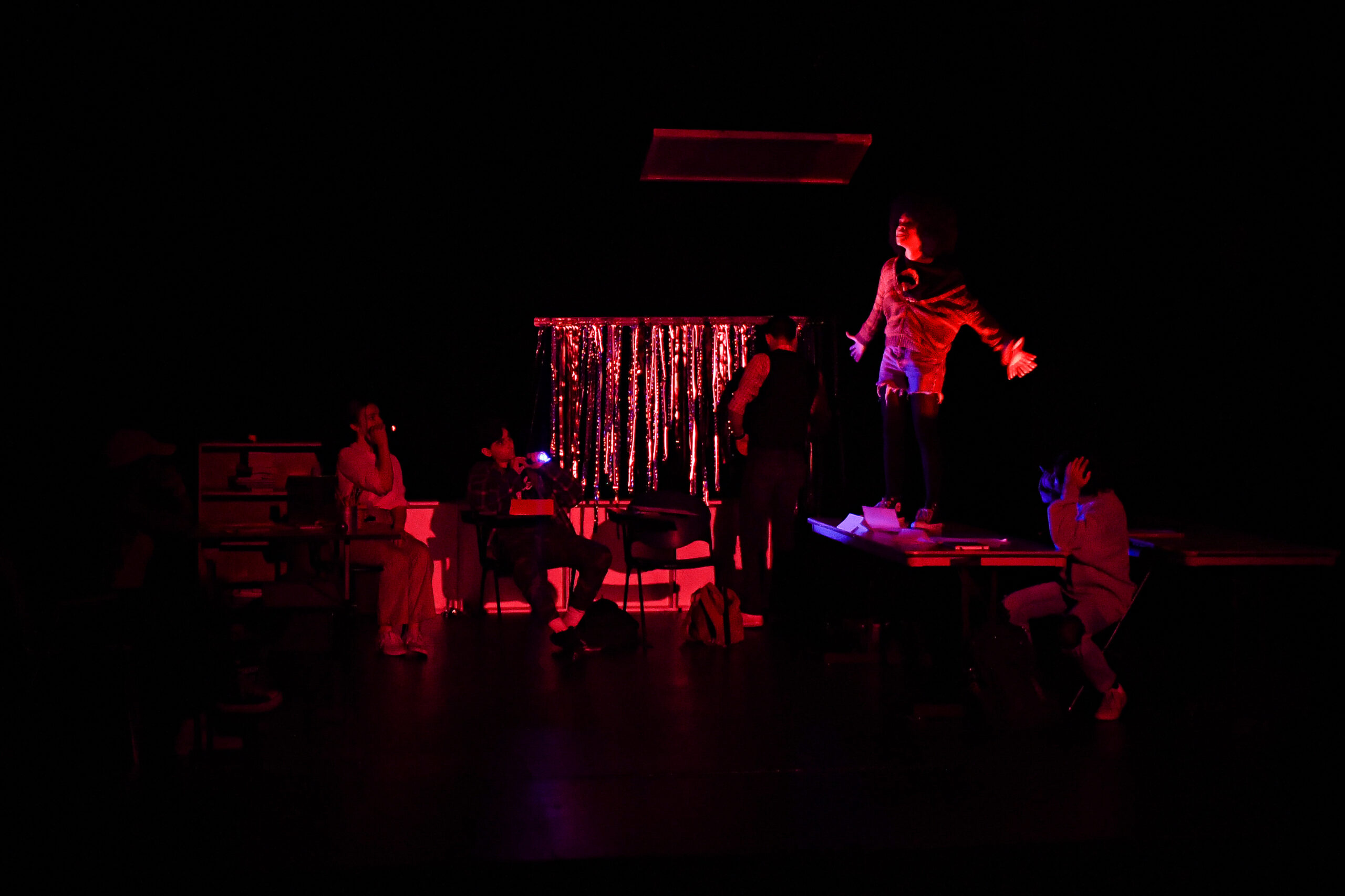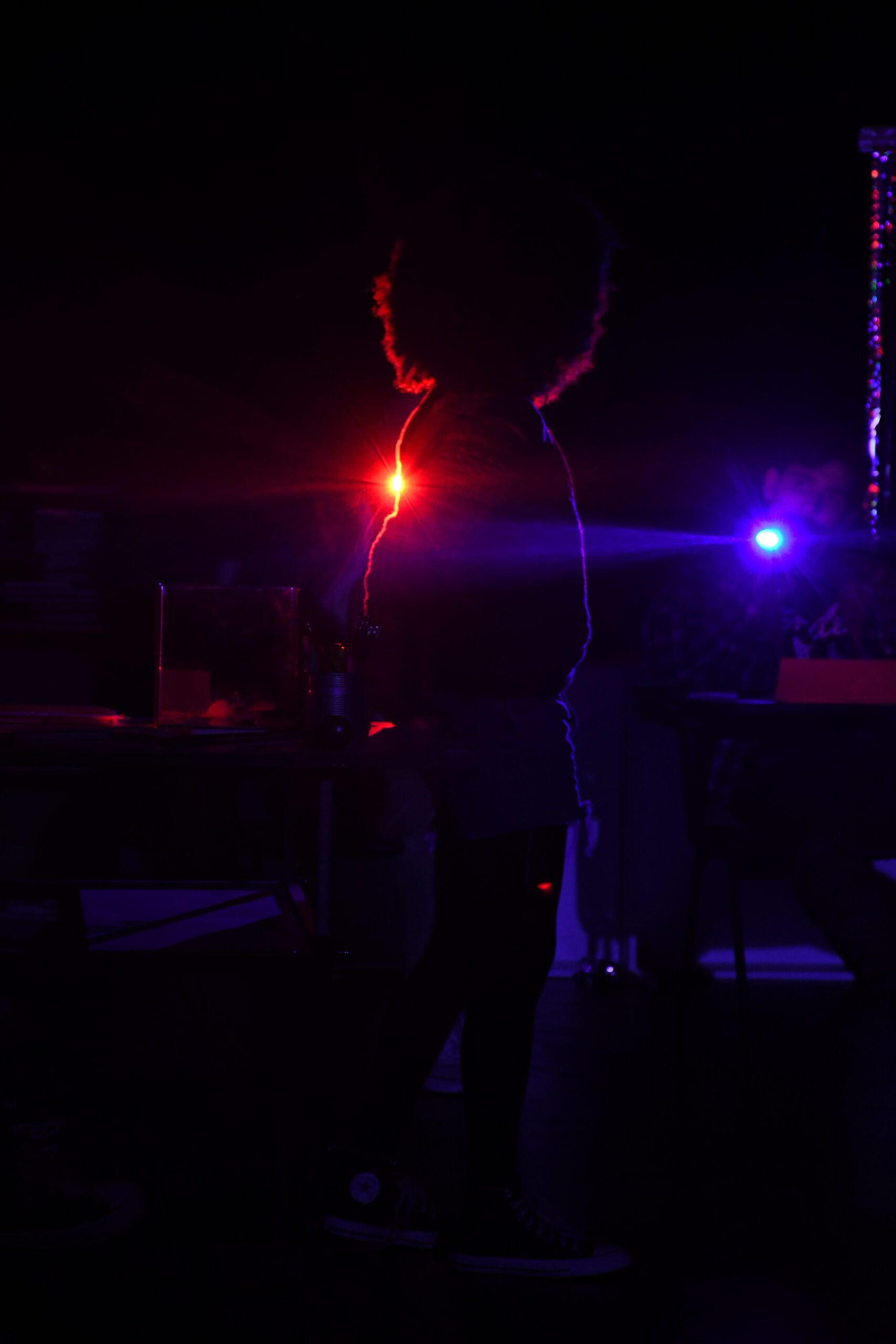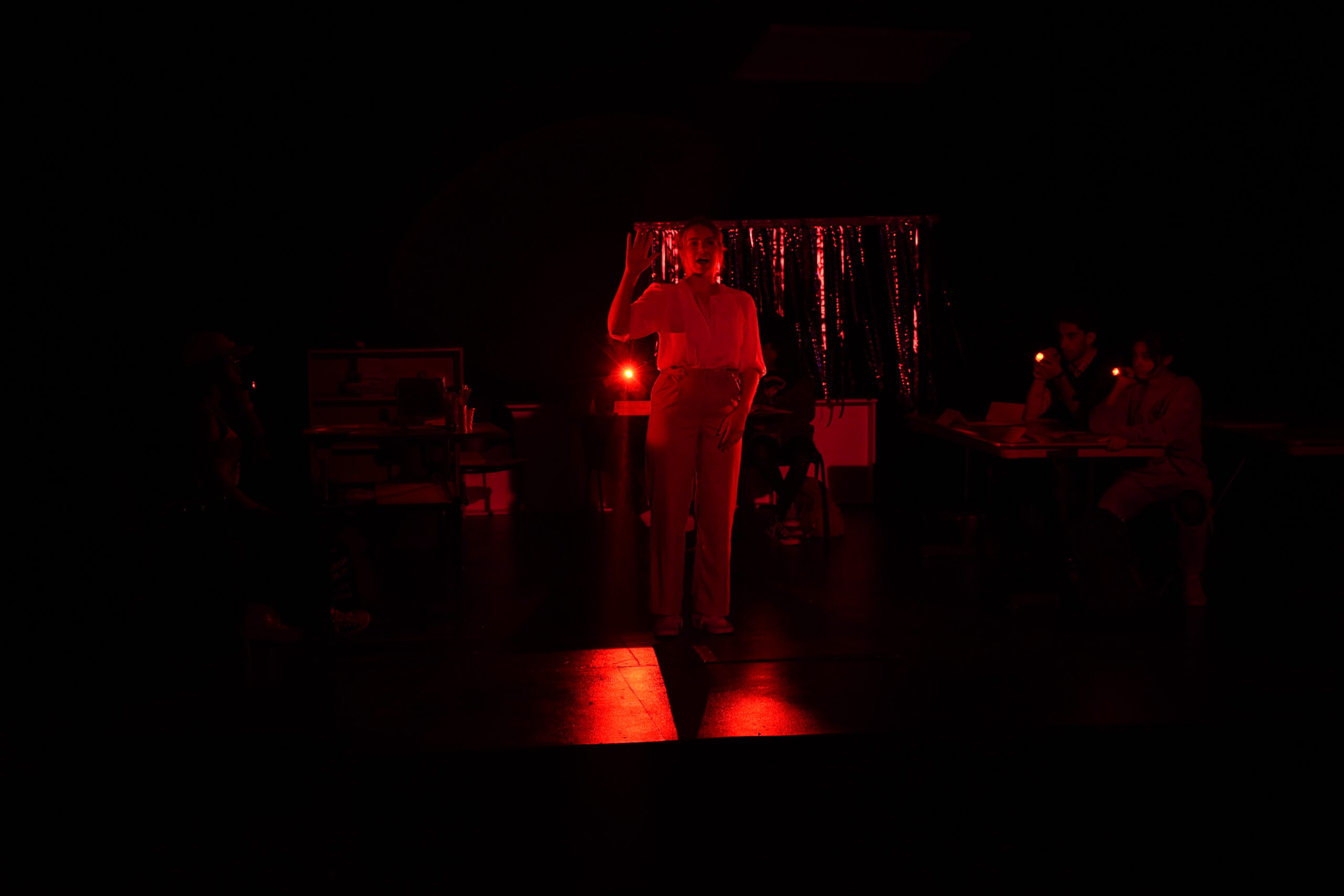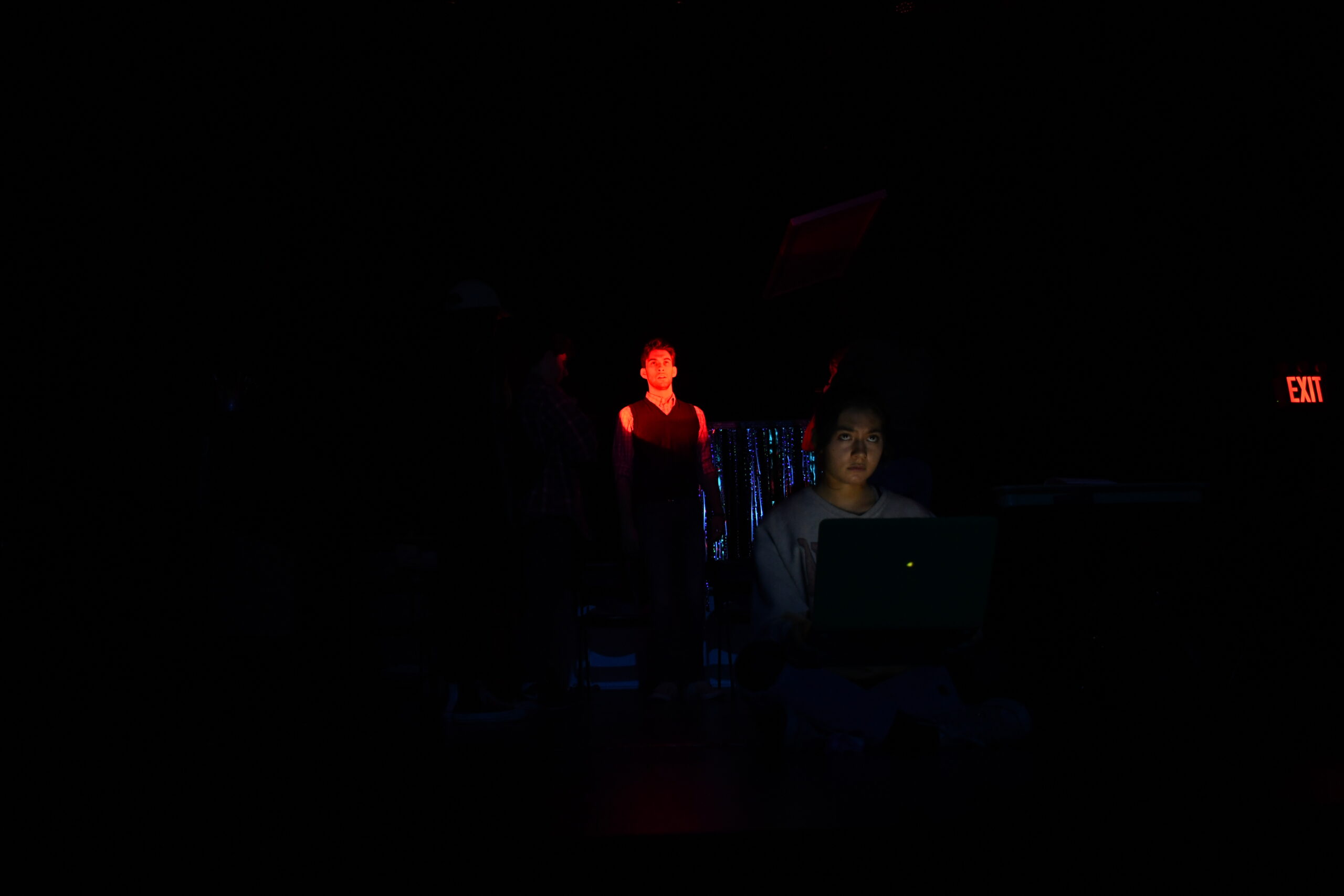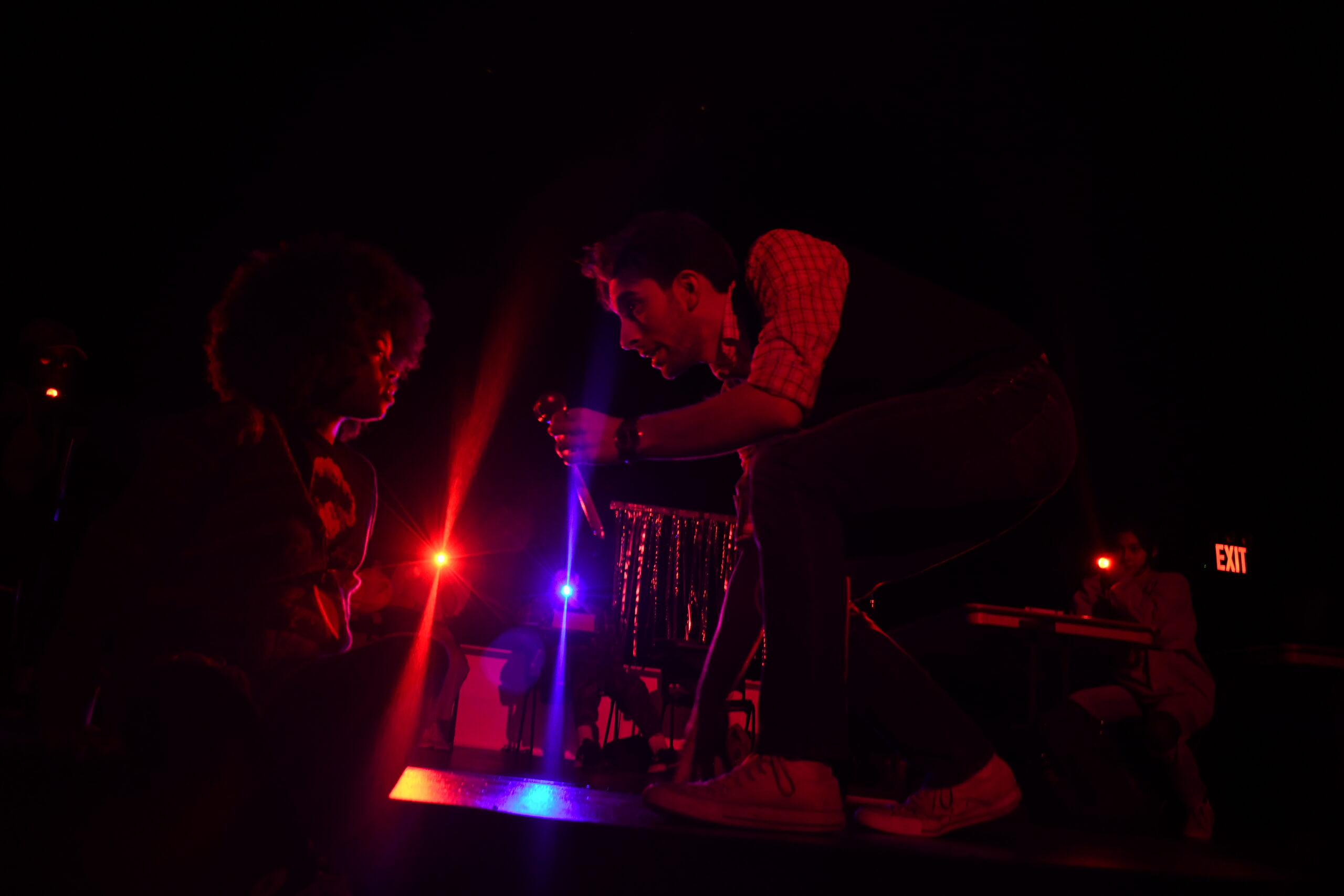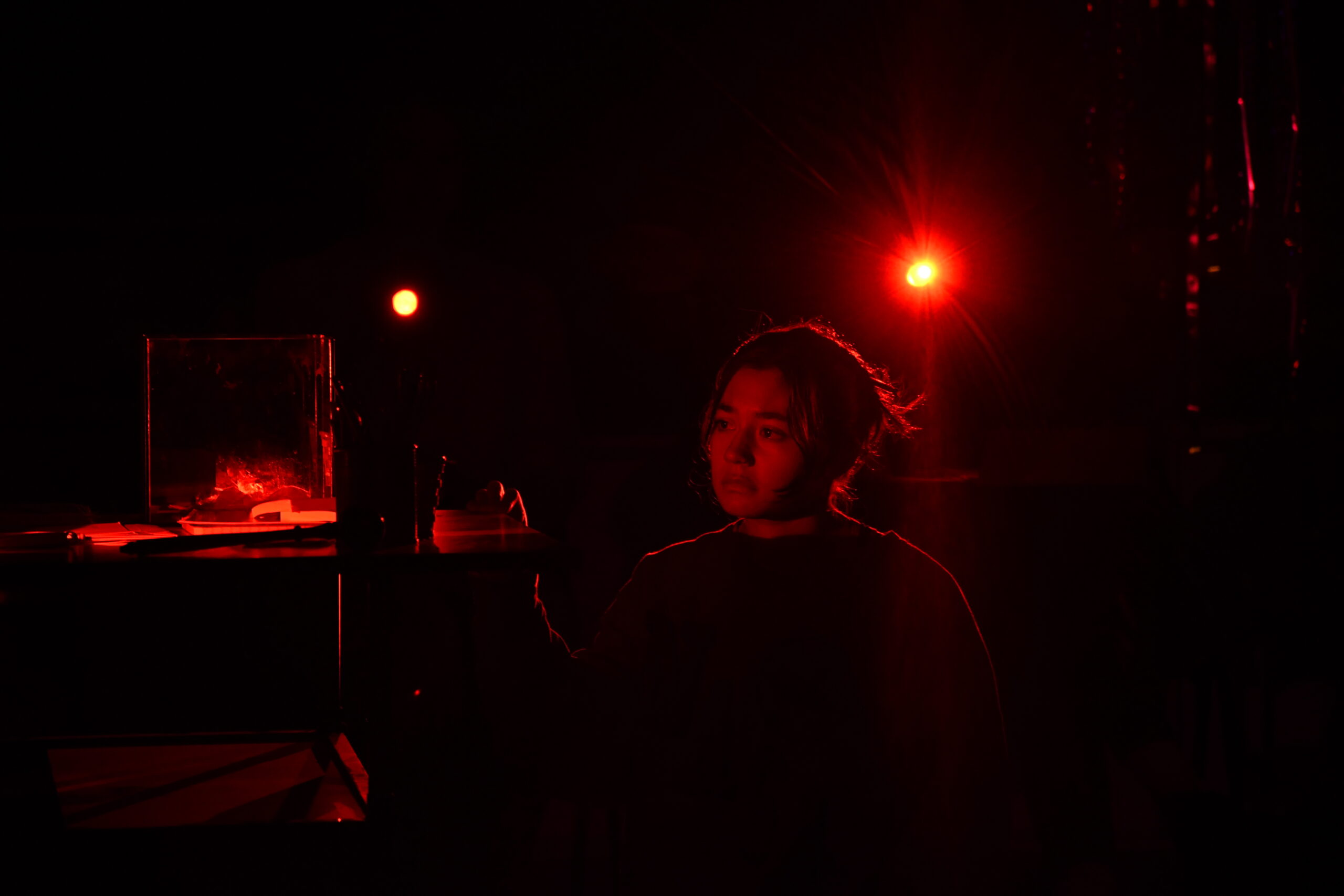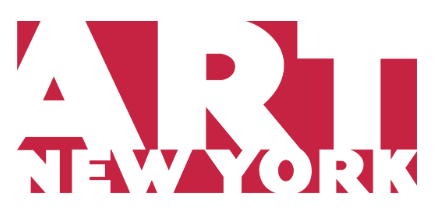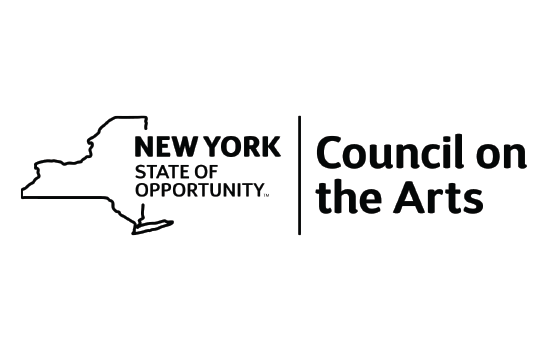
SheNYC is the City’s premier festival showcasing new, original works by women, trans, & non-binary writers & composers.

SheNYC is the City’s premier festival showcasing new, original works by women, trans, & non-binary writers & composers.
script submissions
OPEN SEPT. 30!
WE ACCEPT FULL-LENGTH PLAYS & MUSICALS BY WOMEN, TRANS, & NON-BINARY WRITERS.
READ ON BELOW TO LEARN MORE ABOUT WHAT IT MEANS TO BE IN THE FESTIVAL!
Photo: Fort Huachuca by Ailema Sousa. Photo credit: Danielle DeMatteo.
Photo: 0874: A Filipino-American Love Story by Alex Palting, SheNYC 2023.
MEET THE 2025 SHOWS
the garden bridge
A New Musical
Book and Lyrics by Jill Ohayon
Music by Andy Li
The Steinburgs, a Jewish family from Vienna, arrive in Japanese-occupied Shanghai in World War II -- one of the only places that would accept Jewish refugees without visas. Forced into the city’s poorest neighborhood, they find themselves living next door to the Yes, a Chinese family which has suffered its own share of loss. Despite language barriers, scarcity of resources, and the constant threat of violence, the two families fight to survive and develop relationships with one another in ways that will change them all forever. Against all odds, they're able to form a new community against the backdrop of of a barbaric war.
goatman
By Jen Jarnagin
Nothing kills a romantic getaway like a dead parent. When Steph’s estranged mother dies unexpectedly, her brother, Dan, crashes her couples trip with her partner, Rosie, to scatter their mom’s ashes in the Appalachian mountains. There, they are presented with an unusual method for coping with their grief: They can leave all of their problems and sorrow behind for an idyllic life in the mountains. All they have to do is turn into goats.
the last piece
A new musical by Shreya Jha (Book, Music, and Lyrics)
mommy
By Molly Kate Babos
next year in connecticut!
A New Musical
Book and Lyrics by Sarah Rossman
Music by Sequoia Sellinger
Welcome to seder with the Stablemans, featuring forbidden romance, Brisketgate, a dog shiva, an Exodus tap dance number, and hey, this might be the year that Elijah (the prophet) shows up! A musical love letter to dysfunctional families, Next Year in Connecticut! explores how mental illness hijacks family systems, transforming relationships and redefining normalcy. With the Stablemans, boundaries are negligible, and laughter and disaster go hand in hand.
pas de trois, or the dancing witch play
By Aaliyah Warrington
It’s Summer. 1518. And the people of Strasbourg are…comfortable in their sanctimonious society. But newcomers Theodore Troffea and his wife, Manon, challenge their social rules, especially after one hot July day when Manon begins manically dancing in the streets with no indication that she will stop.
When others follow suit and bodies begin to fall, Manon’s new neighbors become her witch hunters overnight. As her humanity is brought into question, Manon is forced to reckon with the reason she began dancing in the first place.
wilderness!
A New Musical
Book & Lyrics by Rona Moriah
Music & Additional Lyrics by Olivia Berkson
Mari, Beth, Cass, Julia, and Nadia would never be friends in most circumstances. But when they find themselves stuck with each other in a failing wilderness therapy program for teens, they must navigate the ups and downs of their internal struggles and interpersonal relationships, all while learning how to make fires and properly poop in the woods.
the word of the day
By Cori Diaz
Twenty-five-year-old Nicolet Diana is known for winning the International Linguistica, a spelling competition as rigorous as the Olympics. But after a world famous linguist is found dead, Nicolet is put under under house arrest, and is convinced someone is communicating with her through her local newspaper's word-of-the-day segments. Concerned she may be a danger to herself, the police send in Magdalena, a hairstylist turned crisis counselor...who happens to be Nicolet's ex-girlfriend. Set against a backdrop of obsession, manipulation, and linguistic prowess, The Word of the Day is a powerful examination of toxic devotion, manipulative power dynamics, and the dangerous allure of words.
The 2025 SheNYC Summer Theater Festival is brought to you with the generous support of the Jonathan & Rae Corr Family Foundation.
ASL Interpretation provided by Inclusive Communications Services.
We’re so grateful to THE BECHDEL PROJECT for providing rehearsal space to our shows! Learn more and book their space at bechdelproject.org.
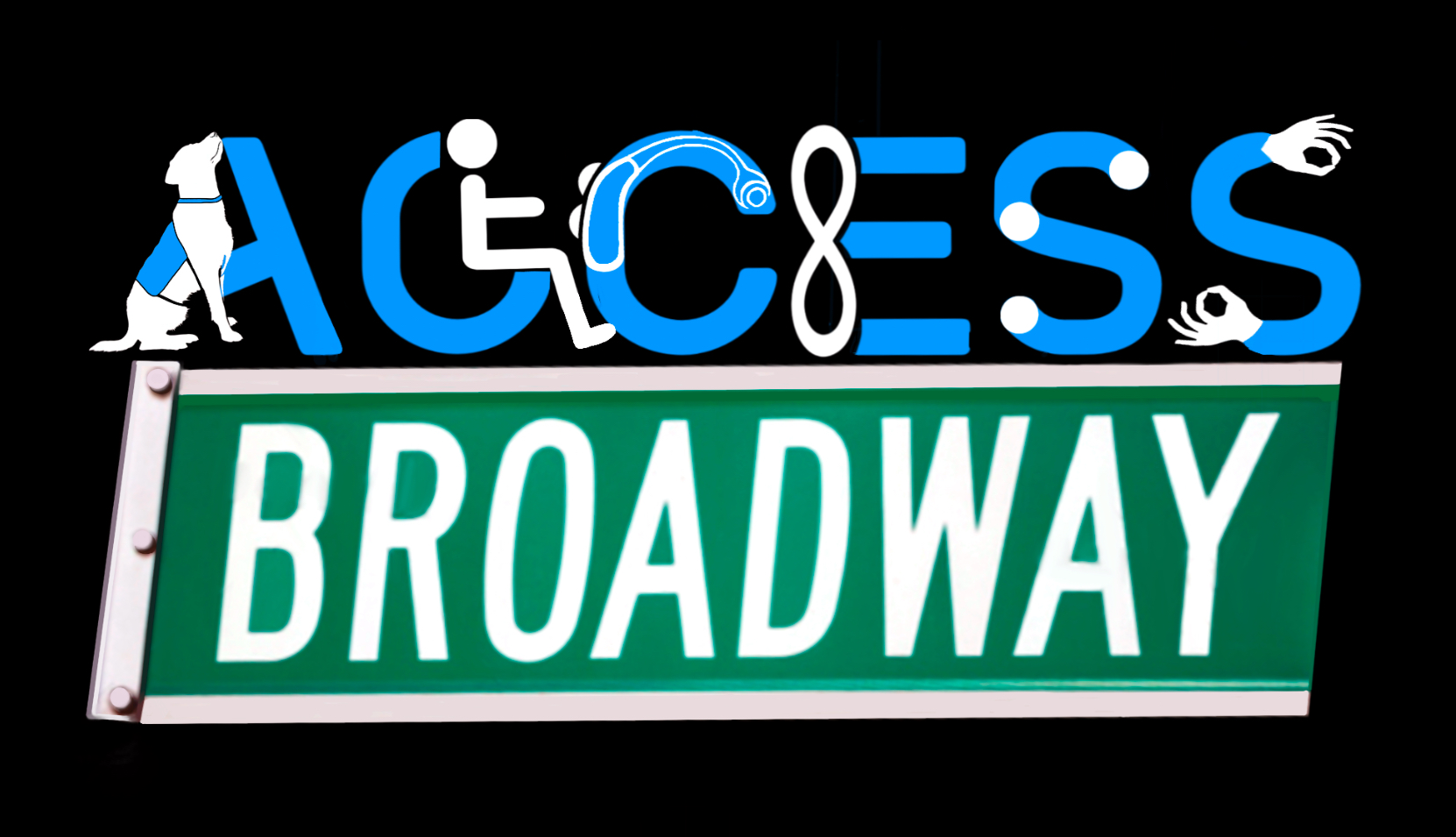
Live captioning for all in-person performances of The Word of the Day and Next Year in Connecticut! provided by Access Broadway.
Need captioning for an additional performance? Email us at ticketing@shenycarts.org!
About the SheNYC Summer Theater Festival
What is a theater festival?
A theater festival is an opportunity for playwrights to self-produce their work in full onstage, for a paying audience. Festivals have multiple shows which all share resources (like the theater itself, front-of-house staff and supplies, and technical equipment), making the process far less expensive for everyone than producing your show on your own. If you’ve done developmental readings already and feel like you’re ready to take the next step of seeing your piece fully staged, a festival is probably the right fit for you!
There is no participation fee to participate in the Festival, and we provide all the aforementioned shared resources for you and the other shows.
Production Photos from the 2022 SheNYC Summer Theater Festival. Photo Credit: Shoshana Medney (@bwaysho)
SheNYC Provides:
THEATER RENTAL
The rental of an off-Broadway theater and all of the equipment that goes inside of it:
- Lighting & curtain package
- Laptop with Q-lab and speaker system for sound cues
- Miscellaneous tech items like gaff tape, common tools, etc
- A 5-hour long tech slot to tech your show
- General Liability Insurance for your time inside the theater (note that this is separate from the insurance required by AEA if you hire AEA actors)
THEATER STAFF
We provide the staff IN the theater to make your tech and performances run smoothly, including:
- Our Festival producing team, who manage producing the Festival as a whole and are there to help you throughout the process
- A Production Manager and Associate Production Manager to run your tech and call your show
- A lighting designer to design your lights and program the light board during your tech
- A sound technician to make sure your sound cues run smoothly
- 1-2 additional backstage crew members to use in a way that best fits your show
- Full front of house staff – Ushers, Box Office, Concessions, and House Manager
SOME SET PIECES & PROPS
- We provide some limited miscellaneous set pieces that will be shared by all of the shows, exact pieces TBD. In the past, we’ve had tables, chairs, cots and couches to offer to all of our productions. Our Production Manager will poll the shows in advance of tech to get an idea of what the furniture needs may be.
- We also have a Materials for the Arts (MFTA) membership, which provides free materials for arts nonprofits. We’ll set up a visit to their warehouse in Queens so you can get free set, props, and costume items.
THEATER EQUIPMENT
- An upright piano in the theater.
- A rep lighting plot that all the shows will share.
- A rep speaker plot that all the shows will share.
- Stationary curtains hung on the stage that all the shows will utilize.
MARKETING & ADVERTISING
- We have a marketing campaign advertising the festival as a whole with social media ads, Google Ads, and various ads on other digital outlets that theatergoers frequent.
MISCELLANEOUS
Some other tools and items we provide are:
- 12% of ticket sales from your show
- A $200 stipend
- Playbill for all shows
- A closing night party with awards determined by a panel of industry judges
- Full ticketing system managed by SheNYC Box Office staff
- Production photography & videography
- Select performances will get live captioning and/or ASL interpretation
- A life-long community of artists who will support all of your work in the future!
You Provide:
CAST AND CREATIVE TEAM
You are responsible for casting your show. You can choose to work with Union or non-Union artists.
- If you do hire AEA actors, you will need to manage your contract or code with them, pay them the amounts dictated by your contract with AEA, and provide the insurance required by AEA (your Festival producer can help explain!)
You also bring your own director, and any other creative team members that you think you need to build the world of your show. Just note that with limited tech and load-in time, we recommend you keep it simple!
DESIGN PIECES
- Any additional set, costumes, and props that aren’t covered by our shared pieces or MFTA warehouse.
- If your show requires a band, you/your musicians should bring their own instruments beyond a piano.
REHEARSAL STUDIO SPACE
You handle the entire rehearsal process before you get into the SheNYC Theater. Booking rehearsal studios tends to be the biggest expense in your budget, so we have some partnerships with local studios to get you discounts on those costs, including free space in Brooklyn from our partnership with The Bechdel Project.
“ELBOW GREASE” MARKETING
While we manage paid ads for the festival, we need your help to spread the word about your show to your networks! You likely won’t need or want to put money into this — just some old-fashioned effort of starting an Instagram for your show, emailing your network to let them know about your performances, and otherwise spreading the word to family & friends.
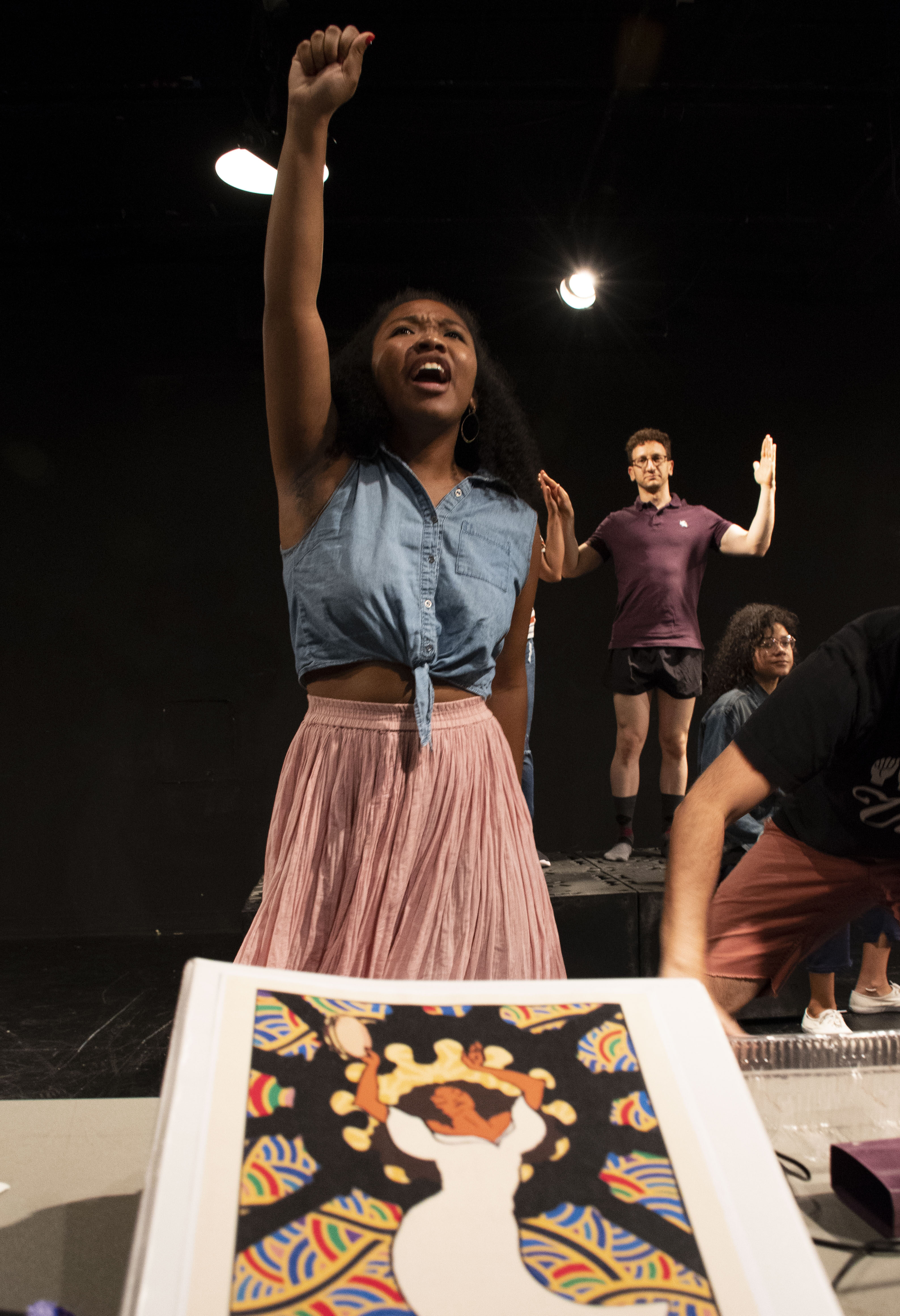
Pictured: a rehearsal photo from DANCING GIRL by Elinor T & Drew Vanderburg, SheNYC 2019. Photo credit: Shoshana Medney.
Festival Timeline
SEPTEMBER 30-NOVEMBER 5, 2025: Script submissions open. You’ll be able to submit your application and script any time until November 5 at 11:59pm EST.
MARCH 2026:We will notify you if you’re a finalist for the Festival.
APRIL 2026: We notify all shows of their acceptance to the festival. (We will also let you know if you’re not accepted.) You then accept your slot.
MAY: All the fun stuff starts! We’ll kick things off with a meet and greet/info session. You’ll lock down a director and start casting your show.
JUNE: Start rehearsals for your show! This is the part where you and your creative team take over. Our staff will be checking in about your progress, answer any questions, and to help market your show. NOTE that you will only have 5 hours to tech your show, and 15-30 minutes to load-in and load out, so we recommend you keep it simple when it comes to tech elements.
JULY: The SheNYC Festival will run for two weeks in mid-July 2026 — exact dates TBD.
Each show will get a 5-hour tech slot (where you do a cue-to-cue and dress rehearsal), followed by 2 performances within those two weeks. We will also leave a few empty performance slots in the schedule so that any show that sells out its first two performances can add extra performances. We’ll then close things out with a Closing Night Party for everyone to celebrate their hard work.
ready to apply?
artist directory
Are you a stage manager, director, choreographer, musical director, or designer? Add your name to our Artist Directory. We’ll send the writers this list of artists as a reference to help them fill in any blanks on their production teams. (Note that we don’t take actors on the Artist Directory – we will have a separate casting call in May for actors).
Pro Tip: Write “Festival Producer” or “Festival Volunteer” under “what’s your specialty” if you’re interested in volunteering for the Festival as a whole!
frequently asked questions
When will submissions open for the 2026 Festivals?
Script submissions will open in September 2025 for the 2026 SheLA, SheATL, SheDFW, & SheNYC Theater Festivals. They’ll be due by November 11.
At that time, the application will be live at www.SheNYCArts.org/submissions.
What is it like to do my show in the Festival?
Once you get accepted into the Festival, you’ll want to start thinking about a director for your show. We can help with that, and other creative team roles, by sharing our Artist Directory.
Next, casting! Work with your director to get your show cast, and hire any other creative team members you might need.
Then you’ll spend the 1-2 months before your performance date rehearsing and getting your show ready. Simply put, you handle your show in the rehearsal room, while our staff gets the theater ready. Our Producers and Production Manager will be checking in often to get information from you and keep you on deadline.
Our Festival staff loads all our equipment into the theater the day before tech starts. You’ll have an assigned 5-hour tech slot in which you must load in your set & costumes, do a cue-to-cue so our Lighting Designer can cue your lights, and then do a dress run of your show.
After that, you have 2-3 performances scheduled by our Production Manager. You have 15 minutes to load in your show before each performance, and 15 minutes to load out after. We handle everything related to Front of House – ticketing, box office, ushers, etc. – so all you have to worry about is what’s happening on stage.
Finally, we close the Festival with a closing night party and awards ceremony!
How do I get tickets to a Festival show?
Tickets for the NYC, DFW, and LA Festival Shows will be on sale in June! SheATL and tickets will be on sale in July. At that time, you can head back here to our website to select the performances you want to see. When you check out, you’ll be sent a confirmation email. We will also offer subscription packages for those who want to see multiple festival shows.
In-person performances will happen in the city of each festival, but all of the Festivals will have select recorded performances that will be available for online viewing. Check back when tickets are on sale to get your digital ticket, and view the Festival shows from anywhere!
What makes us different from other theater festivals?
Our goal is to make this an inclusive, productive, and affordable environment to see your work produced in full. We pride ourselves on providing more for less – more support, supplies, and learning opportunities without the prohibitive submission & participation fees that other festivals require.
Also, we’re working to create a network of professionals and artists that are devoted to promoting the voices of women & gender-marginalized professionals in theater — not just put up your show and never hear from you again. We have meetings where all of the writers gather together to mingle, and hope that the other writers and artists involved in the festival will become lifelong friends, mentors, and supporters.
What are we looking for?
You’ve got an awesome show. We’ve got an awesome festival. It’s like a match made in heaven.
We look simply for shows that are high-quality and written by people of marginalized genders. We like to have a good mix of genres in each festival – plays, musicals, comedies, dramas, experimental works, and more. We also are partial to shows with themes that fit our mission of women in leadership. But at the end of the day, we want to show the world that our playwrights produce high-quality work that deserves to be seen on Broadway and stages around the country – so, the number one factor in our decision-making is how well-written your show is.
Who can apply?
Any writer of a marginalized gender (including cis women, trans women, non-binary and gender non-conforming writers), or writing team that is at least 50% marginalized genders, is eligible to apply. We’re also taking adaptations that are directed or adapted by folks of marginalized genders, even if they were originally written by men. We only accept full-length shows for the Festival (no short plays), though note that there is a 2-hour run time limit for your performance.
What kind of shows can apply?
Musicals – musicals of any size, shape, and form are welcome to apply. Just keep in mind that 2-hour run time limit. You can submit a show that runs longer than that in its current form, as long as you’re okay with making some trims for the festival.
Plays – again, plays of any size, shape, and form are welcome to apply!
Adaptations – are you a woman director or adapter who wants to do a reverse-gender production of King Lear? We love that. Just make sure you are actually able to obtain the rights to your show (sometimes, special rights have to be obtained if you want to adapt or change gender roles), or better yet, take a public domain play.
How many shows are picked and how will we pick them?
We’re aiming to take 8 shows for our She NYC Summer Theater Festival, though we reserve the right to pick as little as 6 or as many as 9 depending on what the submission pool is like. For our She L.A. Summer Theater Festival, we’ll pick 5 shows. For Atlanta, we’ll pick 3-5.
We’re judging the shows based on two things: The quality of the writing, and the relevance to our mission. Mostly, we’re focused on giving marginalized writers the notoriety and publicity they deserve, so the subject matter of your show will only play into the judging if we have a really tight race between two shows. If we’ve got one slot left and two equally awesome shows, and one is about Napoleon and one is about Molly Pitcher, we’ll probably pick the Molly Pitcher one.
How does the selection process work?
You submit your scripts and application materials by the submission deadline. We pass your script around to a team of script readers, so each script will be read by at least three different people. The shows that get the highest ratings get passed along to the semi-final round, where they will be read by at least two more script readers, with the highest-scoring shows moving to the finalist round. Starting in February, we’ll be notifying people if they’re finalists on a rolling basis. From there, the finalists are read by our full staff, and we make our final decisions after an in-depth team discussion.
By April, all of our selected participants will be notified, and we can start getting to work!
If I submitted a show in the past, can I submit again?
You sure can! You can submit the same show again, particularly if you’ve revised it, or a new show. If you’ve already had a show produced in the Festival, you can also submit a new show for this year.
Will we get feedback on our submissions?
Because we don’t charge a submission fee and get such a large volume of submissions, we unfortunately don’t have the bandwidth to offer feedback on each script.
The SheNYC Summer Theater Festival is funded in part by the generous support of:
Public Funds from the New York City Department of Cultural Affairs, in Partnership with the City Council
The Jonathan and Rae Corr Family Foundation
A.R.T./New York’s NYC Small Theatres Fund made possible with support from the Howard Gilman Foundation
The New York State Council on the Arts

